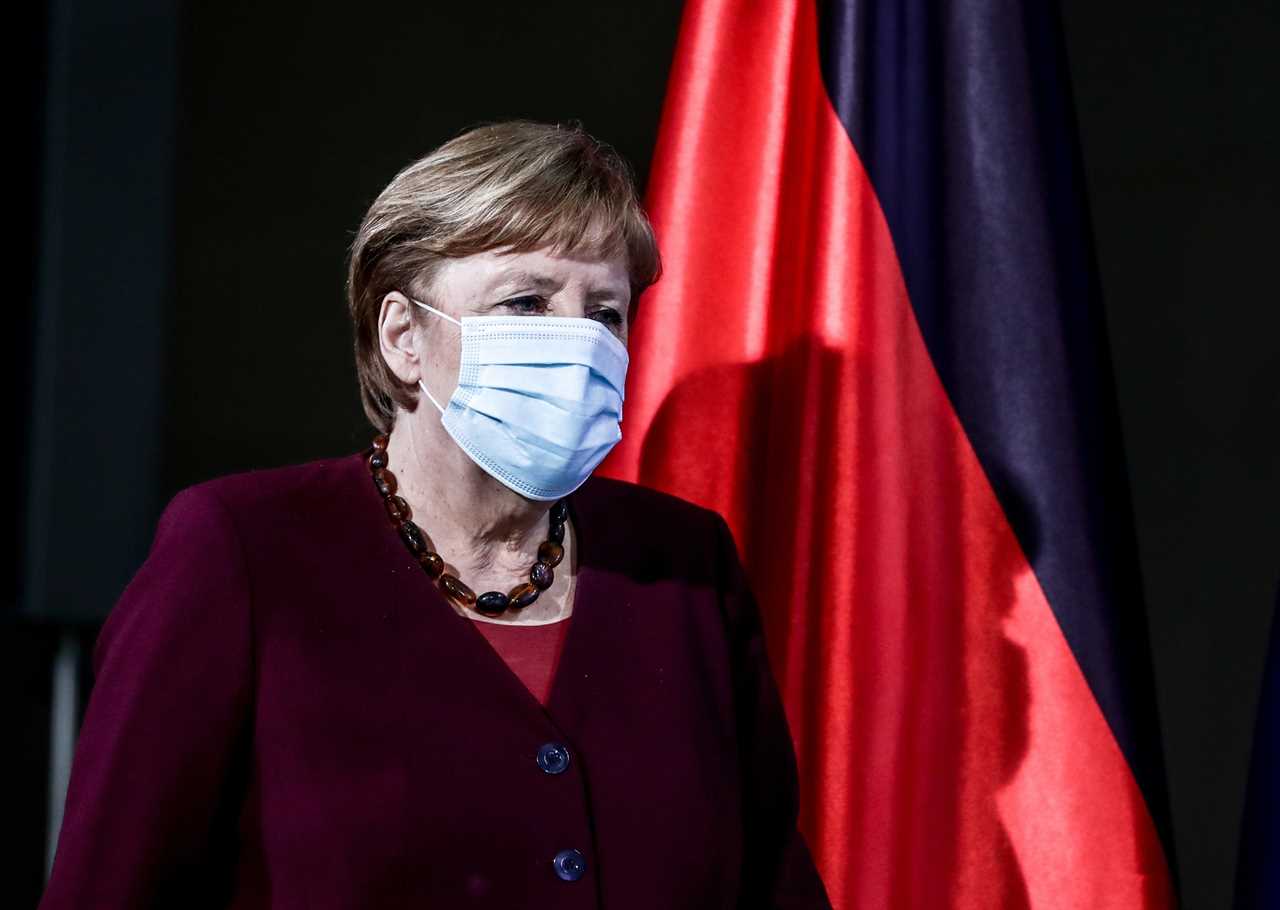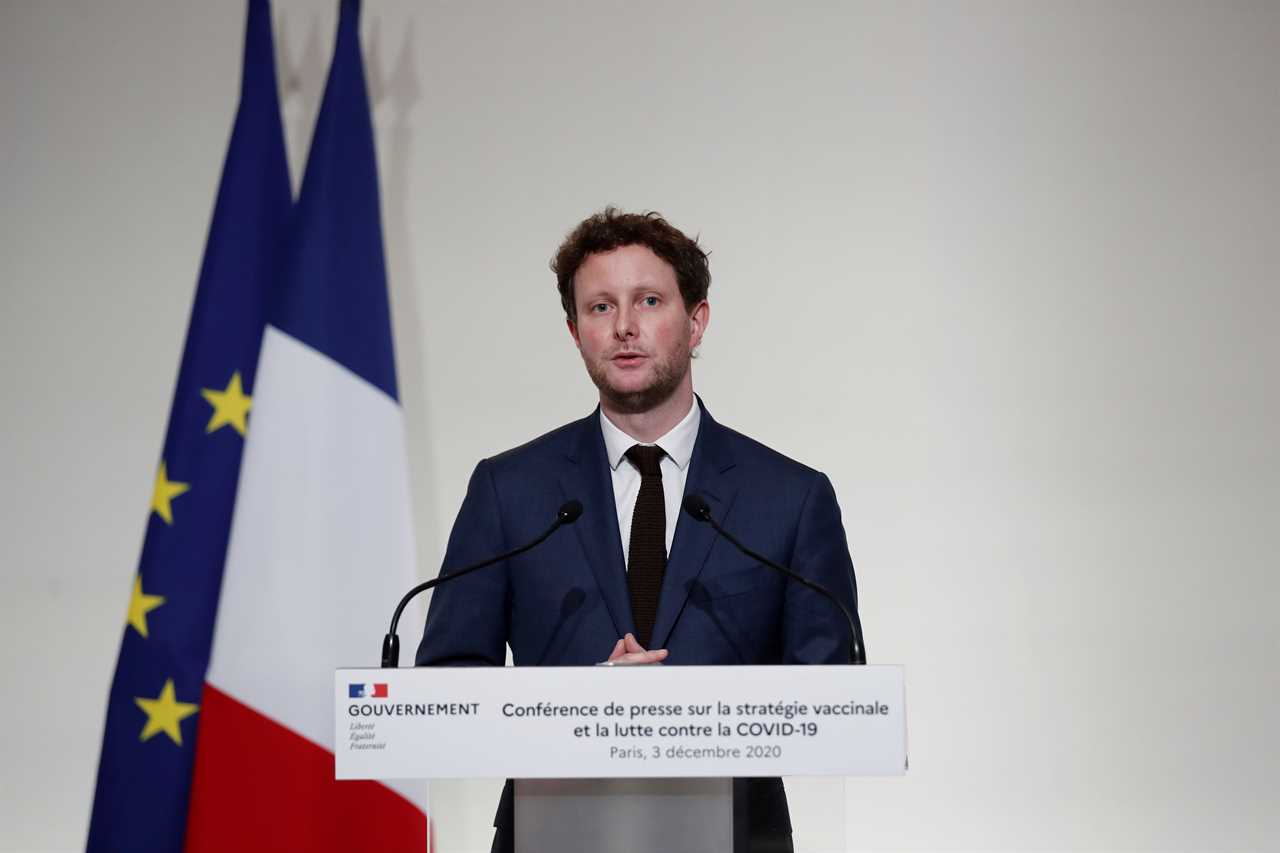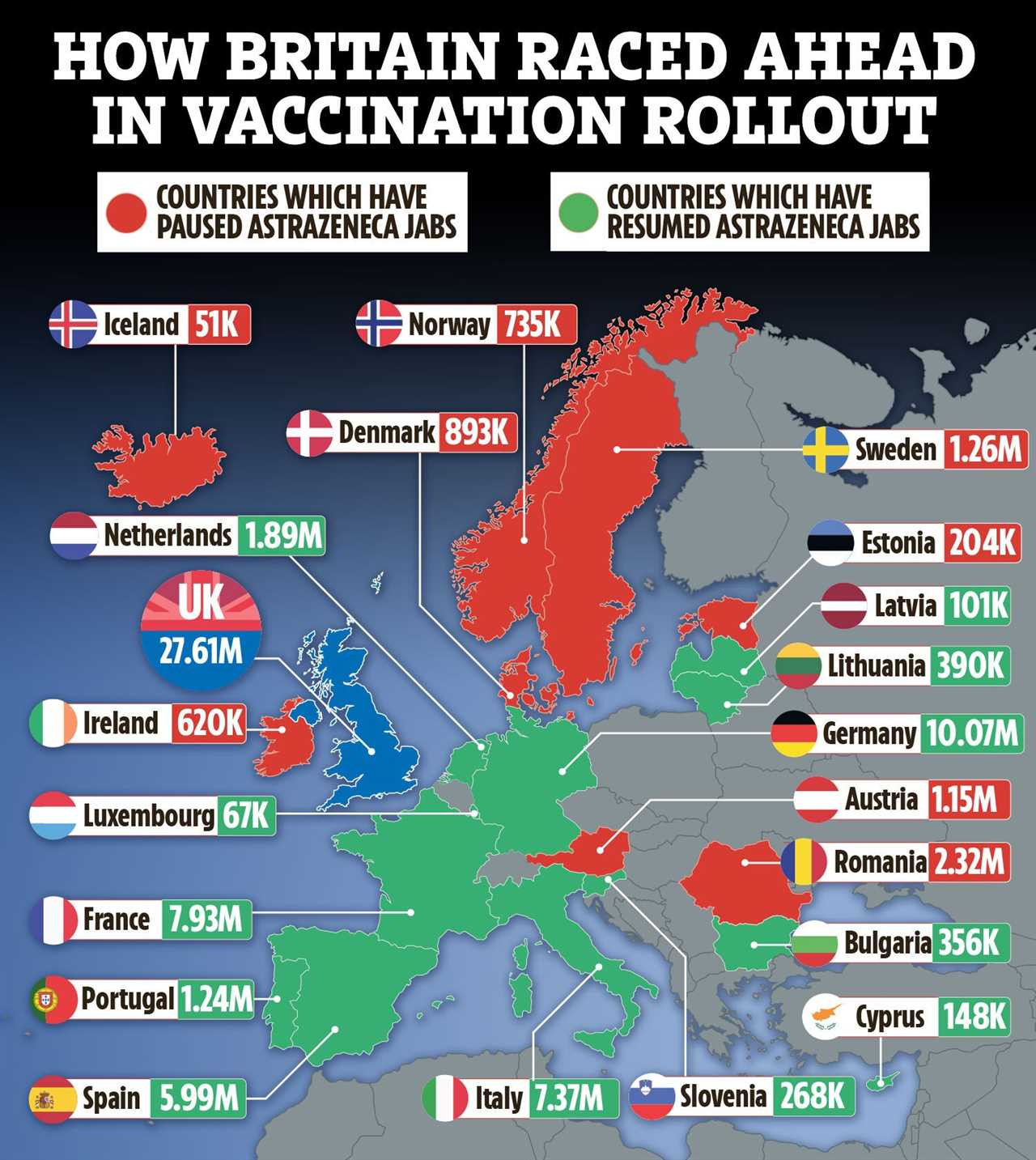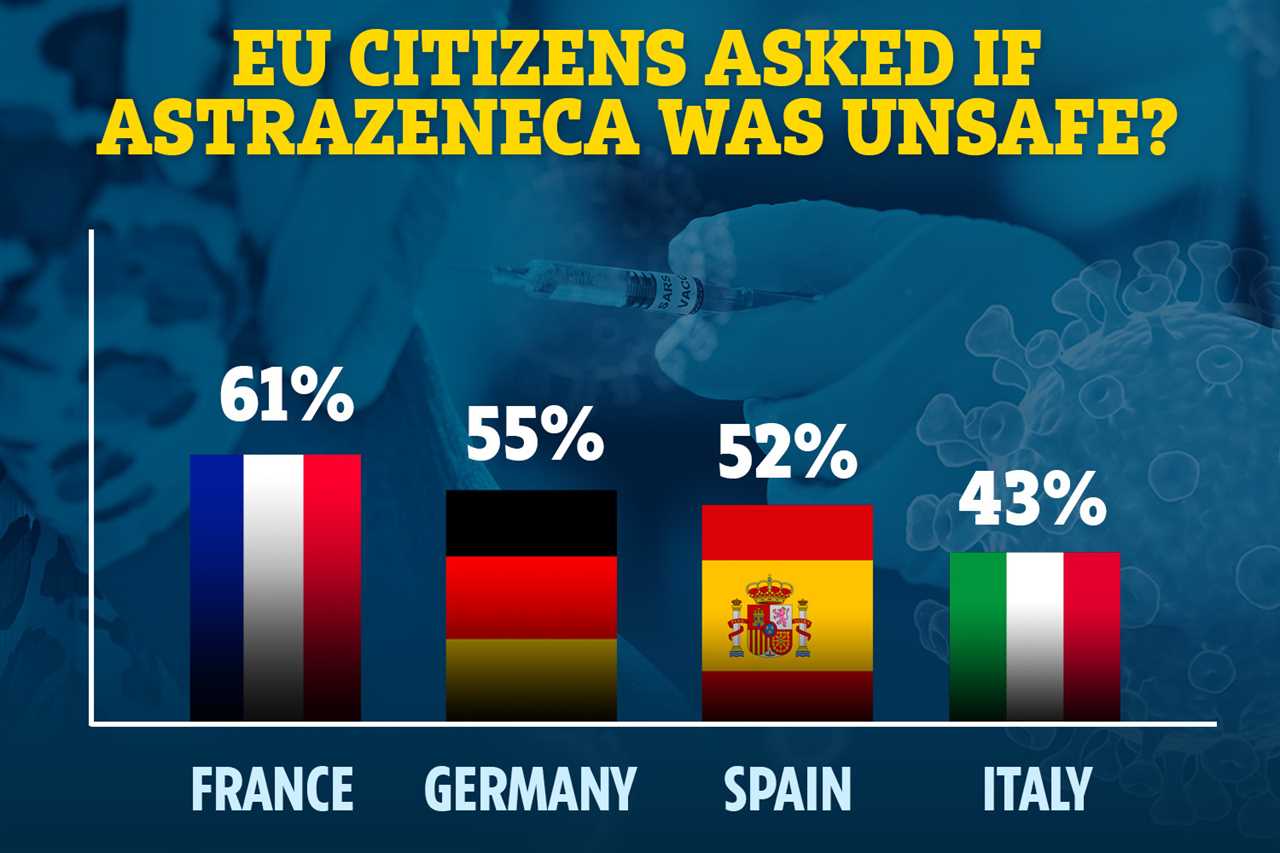ANGELA Merkel has ordered Brussels to back off from its threats to block the export of Pfizer jabs to Britain.
The German leader ruled out a full-blown blockade of the UK as she tried to pull the EU back from the brink of starting a vaccine war.

Read our coronavirus live blog for the latest news & updates…


But she still threw her weight behind EU chief Ursula von der Leyen’s plan to crack down on AstraZeneca shipments.
And France also vowed to “block exports to the UK” of the Oxford jab if its maker doesn’t switch production to favour Europe.
Brussels is demanding AZ diverts the vast majority of production at its Dutch plant – which can churn out 5 million vials a month – to the EU.
But Mrs Merkel swatted away calls for a “general export ban” targeted at Britain, warning it could hit the continent’s supply chains.
She said: “You have to be very careful now about imposing general export bans – you have to take a very close look at the supply chains.
“We will make our decision in a responsible manner and at the same time we will keep talking to the British government.”
The German leader insisted the bloc’s problem is with AstraZeneca and it mustn’t punish other firms that are honouring their contracts.
She said: “We are exporting to the rest of the world – and bear in mind that some other parts of the world are exporting nothing at all.”
But taking a harder line, France’s Europe minister Clement Beaune demanded AZ divert jabs from the UK to the EU.
He said: “We are telling AstraZeneca we can understand you have production issues but there is no reason for Europe to be the adjustment variable.
“We want to avoid that AstraZeneca doses produced in Europe go to Britain when we are not receiving anything.
“AstraZeneca says ‘I am experiencing delays’. We say ‘mobilise your plants for us and if you don’t, we will block exports to the UK’.”


His German counterpart Michael Roth insisted the EU doesn’t want to throw the UK’s vaccines rollout off course.
He said: “We have to account for the fact that possible restrictions could also have negative effects on third states.
“It is about global delivery chains having to function, especially now during these difficult times.”
Mr Roth said Europe wants to make sure everyone it’s supplying vaccines to is pulling their weight in the overall effort to beat the pandemic.
It is understood talks between eurocrats and top British diplomat Sir Tim Barrow on breaking the deadlock are focussing on this principle of “reciprocity”.
The EU argues it has exported 10 million vaccines – mostly Pfizer ones from Belgium – to the UK without receiving any in return.
But that will be weighed against Britain’s crucial role providing raw materials and funding for the development of jabs.
Talks are covering a wide focus including the UK’s role in supplying raw materials and our investment in the development of vaccines.
An EU Commission spokesman said: “This is not about I give you one dose, you give me one dose. That would be a bit absurd.
“It’s about the whole process of producing vaccines and how we can ensure supply chains operate as efficiently and as effectively as possible.”
The UK Government said it had provided £88 million of taxpayers’ cash to help the development of the AZ vaccine now being used across Europe.
Croda International, a firm based in Yorkshire, also exports crucial raw materials used to make the Pfizer jab in Belgium.
Eurocrats will publish revisions to their vaccine export ban tomorrow, widening the criteria for triggering it.
The new scheme is expected to take into account other countries’ records in facilitating exports to the bloc.






